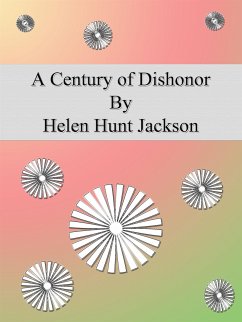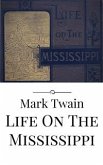I have been requested to write a preface to this sad story of "A Century of Dishonor." I cannot refuse the request of one whose woman's heart has pleaded so eloquently for the poor Red men. The materials for her book have been taken from official documents. The sad revelation of broken faith, of violated treaties, and of inhuman deeds of violence will bring a flush of shame to the cheeks of those who love their country. They will wonder how our rulers have dared to so trifle with justice, and provoke the anger of God. Many of the stories will be new to the reader. The Indian owns no telegraph, employs no press reporter, and his side of the story is unknown to the people.
Bitte wählen Sie Ihr Anliegen aus.
Rechnungen
Retourenschein anfordern
Bestellstatus
Storno









